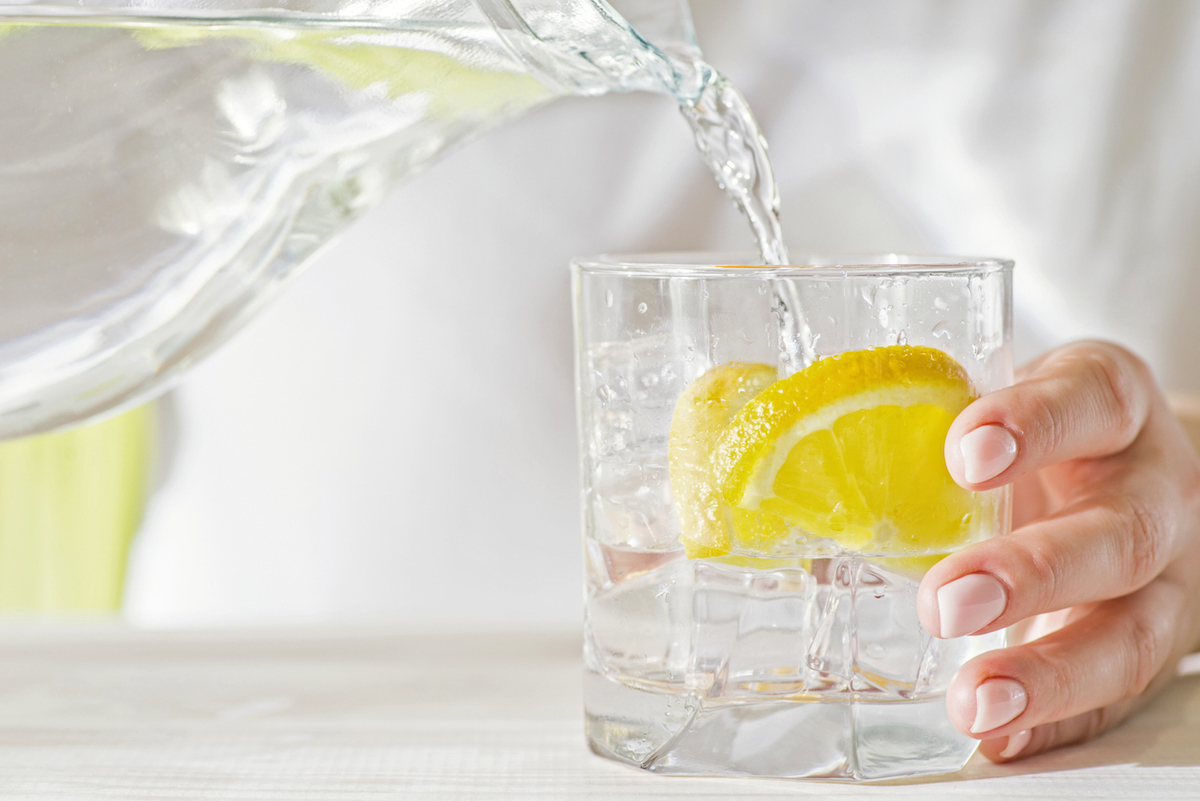5 Things Your Kidneys Will Thank You for Doing, Doctors Say

Your kidneys perform several essential functions: Not only do they remove waste from the bloodstream, they also help regulate your blood pressure, make red blood cells, promote bone health, and more. According to the American Kidney Fund, “kidney disease is growing at an alarming rate.” They say that right now, 37 million Americans are living with kidney disease, and roughly 807,000 Americans are living with kidney failure. To make matters worse, nine out of 10 individuals with early stage kidney disease are unaware they have it.
However, this doesn’t mean getting kidney disease is a foregone conclusion. There are many impactful ways to enhance your kidney health and stave off kidney conditions. Read on to learn about five things your kidneys will thank you for doing, according to experts in the field.
READ THIS NEXT: Bad Dreams Could Be an Early Warning Sign for These Major Health Problems, Studies Show.
1
Maintaining a healthy diet

One of the best things you can do to help promote kidney health is to maintain a healthy diet. “Eat a diet that is rich in fruits, vegetables, and high in fiber,” advises S. Adam Ramin, MD, a urologic surgeon and medical director of Urology Cancer Specialists in Los Angeles, California. He adds that you should “avoid processed foods—they make your kidneys work harder than they already do.”
The National Institute of Diabetes and Digestive and Kidney Diseases (NIDDK) further suggests that most people should cut back on salt and added sugars in order to improve their kidney health. Experts from the organization recommend consuming less than 2,300 milligrams of sodium each day, and getting less than 10 percent of your daily calories come from added sugars.
READ THIS NEXT: If You Feel Numbness Here, Go to the ER, Experts Warn.
2
Staying hydrated

Drinking plenty of water is also essential to your kidney health. “Your kidneys thrive on fluids. Think of it as lubrication for a strong and powerful machine. When it comes to your fluid of choice, stick mostly with water,” says Ramin.
According to The National Academy of Medicine, men should aim to drink a total of 13 cups of fluid per day, while women require nine cups. However, if you have a higher body mass, live in a warm climate, or exercise regularly, you may require more.
3
Preventing or managing any underlying conditions

According to the NIDDK, several health conditions can leave you more vulnerable to kidney disease. These include diabetes, high blood pressure, and heart disease.
Maintaining a healthy diet, getting regular physical activity, quitting smoking, and limiting your alcohol intake are just some of the ways you can lower your risk of these conditions. Your doctor may also prescribe medication to lower your risk of these conditions, or to manage them.
Talk to your doctor to learn more about how to prevent and manage these conditions, especially if you are considered high risk.
For more health news sent directly to your inbox, sign up for our daily newsletter.
4
Quitting smoking

Smoking wreaks havoc on your kidneys in two key ways, says the National Kidney Foundation. First, it can affect medications used to treat high blood pressure, and having uncontrolled high blood pressure is a leading cause of kidney disease. Second, smoking can exacerbate symptoms of kidney disease by slowing blood flow to the kidneys and other organs.
Ramin adds a third way that smoking can tank your kidney health. He explains that since one of the main functions of the kidneys is to remove waste from the bloodstream, consuming products that are essentially pure waste leaves your kidneys overworked. “As far as your body is concerned, there is nothing in cigarettes or other tobacco products that is actually ‘useful.’ So, your kidneys work hard to filter them completely out of your system as waste. They’ve already got enough to do. Don’t give them unnecessary ‘junk’ to clean out,” he warns.
5
Getting a good night’s rest

Your kidneys will also thank you for getting a good night’s sleep on a regular basis—ideally between seven and nine hours per night. “A growing body of evidence suggests that sleep disturbances affect the development of kidney disease, possibly as a result of the inflammatory milieu and sympathetic activation,” explains a 2019 study in the Journal of Clinical Sleep Medicine.
“Kidney function is actually regulated by the sleep-wake cycle. It helps coordinate the kidneys’ workload over 24 hours,” Ciaran McMullan, MD, a nephrologist with Brigham and Women’s Hospital, told the National Kidney Foundation. “We also know that nocturnal patterns can affect chronic kidney disease and that people who sleep less usually have faster kidney function decline,” he explained.
By establishing good sleep habits—and making other healthy lifestyle changes as recommended by your doctor—you may be able to significantly reduce your risk of developing a kidney problem.
Best Life offers the most up-to-date information from top experts, new research, and health agencies, but our content is not meant to be a substitute for professional guidance. When it comes to the medication you’re taking or any other health questions you have, always consult your healthcare provider directly.